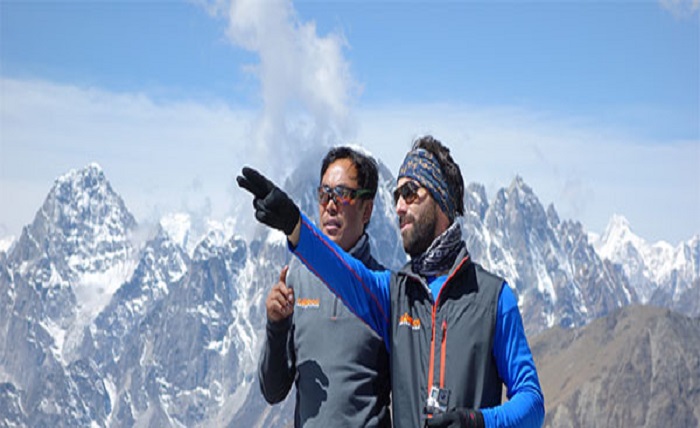How to structure a weekly EBC training plan.

Preparing for an Everest Base Camp trek involves not just logistics and planning, but also mental and physical preparation. You should also follow a weekly exercise routine that will prepare you adequately so that you are not at risk on the hike and you get to enjoy the gorgeous views! Book the Everest base camp trek from Kathmandu, or considering the possibilities of an Everest base camp helicopter return trek, or an Everest base camp trek 2025 adventure, there’s some important training to be done! Are there any guidelines for a day-wise schedule? Such an itinerary is likely to help gain stamina, strength, and endurance with a low risk of altitude sickness on the Everest Base Camp Trek. Excellent training doesn’t just prep your body; it ensures that you are able to enjoy this quintessential high altitude adventure to its fullest.
Assess Your Starting Point
Before assembling a weekly EBC workout plan, you need to know the main objective is to figure out where your fitness level stands. This includes assessment of cardiovascular, muscular, and flexibility components, and endurance. And in case you are planning for an Everest base camp trek package with any local agency, your guide would also fix the plan according to our schedule. Know your base-level fitness so you can train safely and for real. Once you identify how your body will be tested on summit day in advance by using the trek map provided and daily distances/rests/elevation gain versus loss listed in your Everest base camp trail map, then it makes sense to train for those conditions.
Cardiovascular Endurance
Each Weekly EBC Trekking routine should start with cardiovascular exercise. Walking into the heights calls for plenty of sustained aerobic work — whether you are running, cycling, swimming, or power-walking. About 3-4 sessions of half an hour to one hour are really needed to increase both heart and lung volume. At the very least, for the Everest Base Camp trek, altitude sickness, cardiovascular fitness will enable more efficient use of available oxygen. You will also need to increase your basic stamina, as after the Mount Everest base camp itinerary trek, hikers are asked to go several days in a row at an incredibly high altitude.
Strength and Resistance Training
Cardiovascular fitness plays its part, but strength and resistance training also play a significant role in conjunction with weekly EBC. Work is performed by the muscles of your legs (with help from core stability and the upper body). Squats, lunges, step-ups, planks, and push-ups all build strength in the muscles that play a large role in ascending and descending. Adding a weighted backpack to your normal workout exercises replicates the weight of everything you’ll be carrying with you for your trek from Kathmandu to Everest Base Camp. Plus, that extra effort required by rocky and uneven trails means you’re less likely to twist an ankle (especially if/ when added stability exercises are incorporated). An in-shape, well-prepared body is also more equipped to handle the crazy Everest Base Camp helicopter return trek if you so choose.
Hiking Practice
Hiking is THE best preparation for an Everest Base Camp trek. As you complete weekly hikes of escalating elevation and distance, your body will adjust to the conditions. Start with shorter hikes, gradually increasing your elevation gain and distance per the fitness level indicated on your Everest Base Camp trek map. Poles like canes can more evenly distribute the load, and there is less wear on your knee joint on serious downhill hikes. If you have the time, training at altitude has additional acclimatisation benefits and may reduce your chances of developing Everest Base Camp trek altitude sickness. Regular hiking offers an excellent simulation of your trek to Everest Base Camp and will progressively condition legs, lungs, and the energy systems that support you while walking any trail.
Flexibility and Recovery
You’re doing some stretching and yoga work between those sessions in a 7-day training week. As your flexibility grows, more of your muscles come into play, and the risk of strains or sprains is reduced. Your days off are just as important: You can overtrain and become fatigued or injured, or even perform poorly on the trek. Anything active that you can recover with, like light walking or gentle yoga, is an opportunity for your muscles to heal, while still keeping you fit. Physical preparation with A well-planned weekly schedule will help you in both body recovery and maintaining fitness level, to help prepare for an Everest Base Camp trek 2025 physically and mentally.
Nutrition and Hydration
The Everest Base Camp Trek Training cannot be fulfilled without good notes taken on nutrition and hydration. Fueling your workouts by eating a well-balanced diet that’s high in carbs, protein, and fats can help muscles recover. It’s certainly not a bad idea to stay hydrated normally, and all the more so when you’re going to a high altitude. When you work on your eating and drinking during training, it trains you for what’s going to work, so it’s not such an issue when you’re out on the trail. That also fits with Everest Base Camp trek tips we’ve heard from guides who emphasize the importance of maintaining your rhythm and staying hydrated in order to conserve energy at high altitude, as well as help avoid altitude sickness.
Weekly Structure Example
For instance, a weekly EBC class might have 4 cardiovascular classes, 2 strengthening or resistance days, and 1 hiking (and recovery) day. For example: a hard run on Monday, strength work on Tuesday, nothing or yoga Wednesday, and a hill hike/stairs Thursday; strength with your backpack everywhere Friday; a long trail hike Saturday, and active recovery Sunday. Adjustments can be made for your fitness level, access to hiking, and other responsibilities. Another option is to use the map of your Everest Base Camp trek and take advantage of it to get an idea about how you should terrain yourself so that you can meet all the demands from each trekking experience, starting at least half a day from your firstEverest Base Camp one, leaving Kathmandu city itself.
Final Thoughts
A weekly EBC training schedule is considered an important factor for the success and safety by doing trekking to Everest Base Camp. The trekkers have the facility to practice cardio, strength, and resistance exercises, all of which play a supplementary role in helping them build up the stamina and power necessary for high altitudes, besides regular drills like hiking routines and recovery time, which can make your trek easy. Performance suffers from poor food and drink, which also encourages Everest Base Camp trek altitude sickness. Whether you are looking at an Everest Base Camp trek package with a local company, planning the classic EBC trek from Kathmandu , or considering the Everest Base Camp helicopter return trek option, good structured training makes all the difference to your trip.
With these training principles, you won’t just be physically ready, but consistently mentally strong and confident enough to safely get through the trek. Studying your Everest Base Camp trek map, going through your Everest Base Camp trek itinerary, a nd selecting a good Everest Base Camp trek guide is just one small piece of the whole preparation. If you are getting ready to make a plan of endeavoring the journey of EBC in 2025, then you must start practicing earlier before your trip and keep us honest. This journey is lengthy as well as challenging, but it will bring you to the top out there, standing right at the base of this world’s highest peak, cumulatively prepared as well as healthy, so that all the fun out there could just get over from another side into your life.
A strong weekly training schedule is not just about getting there and back; it’s about doing so safely, sustainably, and while having a much better trekking experience. When you equip your body for a trek as well as being prepared with the right gear, tactics, and local support, you will get the most out of your trekking experience so you can best focus on stunning landscapes, cultural merging, or personal levels of accomplishment that all contribute to an unforgettable EBC hiking experience.





